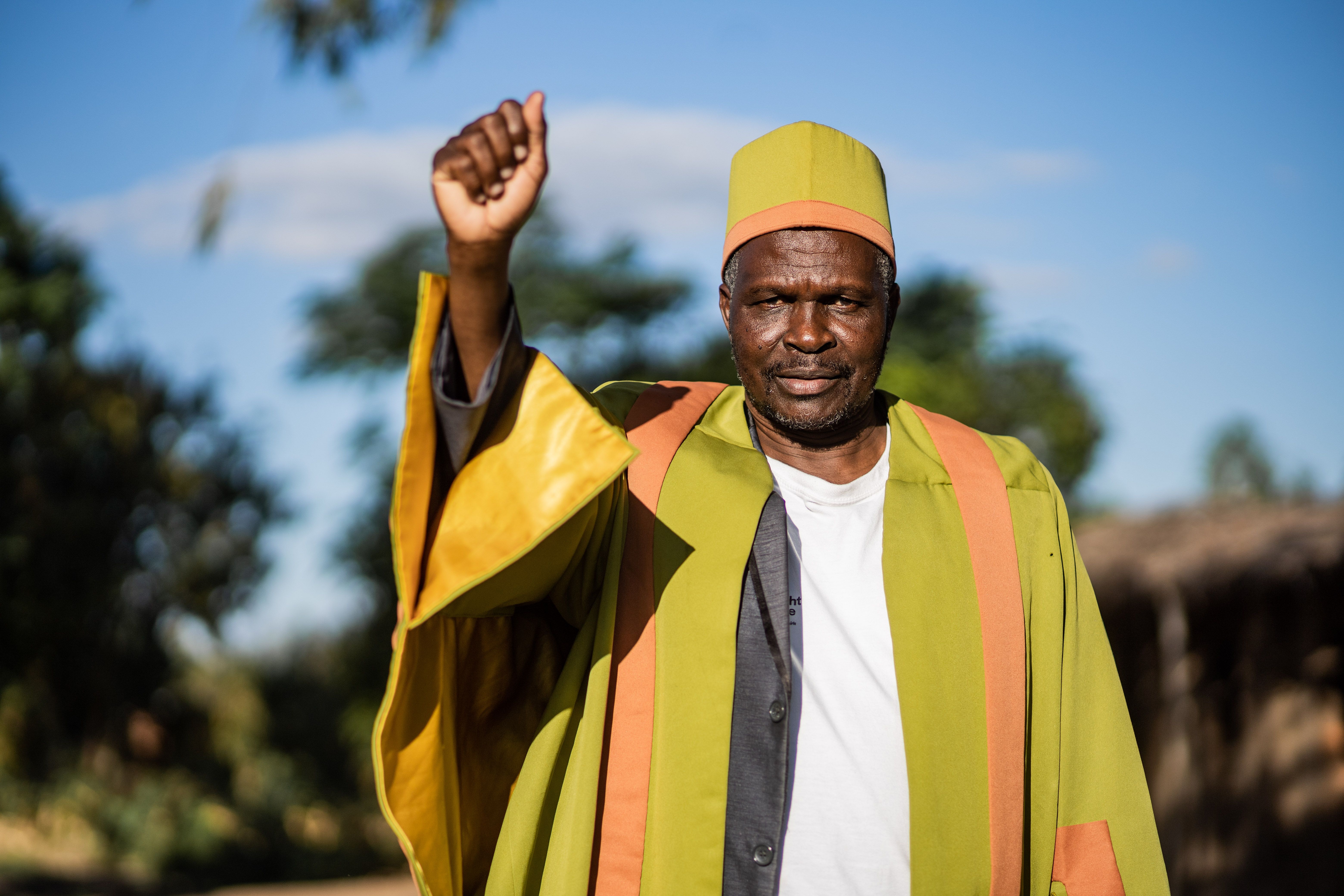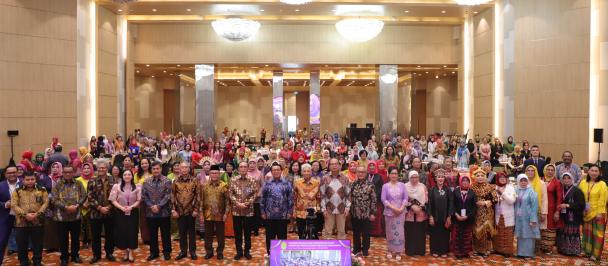In Malawi, Traditional Authorities are helping to eliminate child marriage and get girls back to school
June 6, 2022

Chief Mazinga said one way of encouraging the girls who have been removed from child marriages to work hard in school is through the motivational talks hosted by the chiefs’ forum.
“We have so far dissolved 81 marriages under the chiefs’ forum,” says Traditional Authority Mizinga proudly. “All the girls are back in school.” As Traditional Authority in Machinga district, he is a cultural custodian who oversees day to day activities in the villages and communities. He is also a star performer among traditional leaders when it comes to fighting harmful practices against young girls, such as child marriage.
According to Chief Mazinga, there has been a big shift in attitudes towards child marriage since Spotlight Initiative began working with chiefs to change norms around sexual and gender-based violence and harmful practices through coordinating platforms called ‘chiefs' forums’.
“There is a big change in my area as far as fighting gender-based violence is concerned,” says Chief Mazinga. “The chiefs’ forums track the girls in the schools they are sent back to [after their marriage is dissolved], to ensure that they are really back in school.”
Local leaders, local solutions
Early marriages are among the most regressive practices hampering girls’ education and sexual and reproductive health and rights in Malawi, especially in rural areas. The country has one of the highest rates of child marriage in the world, with approximately 42 per cent of girls married before the age of 18 and 9 per cent married before they turn 15, according to UNICEF.
The practice is often linked to poverty, but communities are now beginning to appreciate that education and economic empowerment are a better way of ensuring security and safety for their daughters’ future than early marriage.
Chief Mazinga said one way of encouraging the girls who have been removed from child marriages to work hard in school is through the motivational talks hosted by the chiefs’ forum.
“At the chiefs’ forum, we believe that it is hard to be what you cannot see,” he says. “As such we arrange for role models to inspire the rescued girls. These models are great at helping girls to make decisions for their future in terms of careers.” He adds that the forum provides notebooks to the girls.
Chairperson for the chiefs’ forum, Chief Kalidoso, says they aim to encourage girls to focus on their education and think of marriage only after they complete school. He added that the chiefs’ forum under Chief Mizinga unanimously resolved that initiation ceremonies should no longer be used to teach girls harmful practices, but rather should concentrate on matters of hygiene, education and respect for elders, among others.
“At the chiefs’ forum, we have punished parents and guardians for abetting early marriages. We are determined to end gender-based violence in the area of Traditional Authority Mizinga,” he says.
Creating structural change
Chief Mizinga said he has also leveraged gender-based coordination structures which have been strengthened under the Spotlight Initiative. It’s now easier for local structures to access and collaborate with district council structures and government ministries, who monitor the progress of work being carried out in the area.
The programme has reinvigorated gender technical working groups and ensures gender issues are included in full council meetings, where the chiefs, parliamentarians, councilors, and other district council authorities discuss development matters.
UNDP Malawi is among the United Nations agencies working towards eliminating violence against women and girls and has led the engagement of chiefs’ structures as well as work to improve institutional responses to violence.
The Spotlight Initiative is implemented in six districts in Malawi and is an initiative of the United Nations that has received generous support from the EU. Its aim is to eliminate all forms of violence by 2030.

 Locations
Locations


